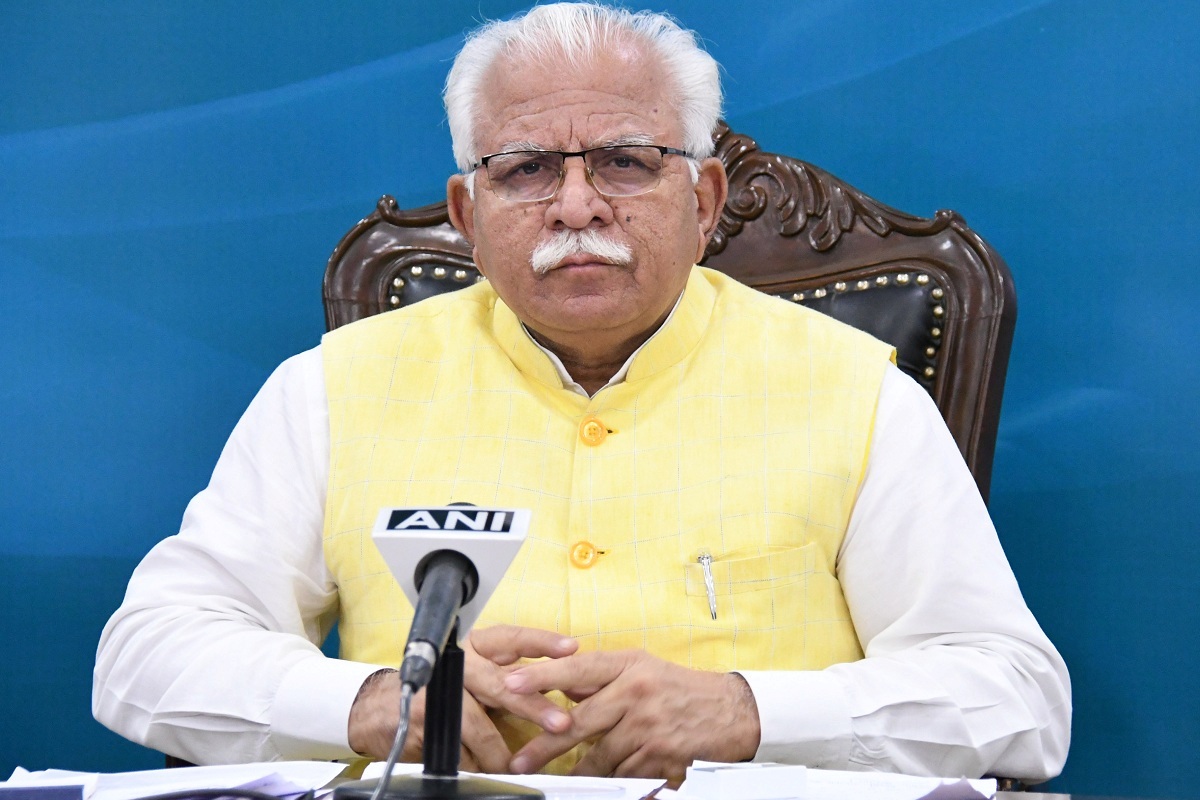Haryana Chief Minister Manohar Lal Khattar has called upon the people of the state to conserve water for future generations.
Virtually interacting with the beneficiaries of “Mera Pani-Meri Virasat Yojana” on Saturday, the CM said groundwater depletion and drying up of water bodies has been a major concern of the government.
He said the Haryana Water Resources Authority has prepared a village-wise report of ground water availability. “This report reveals that out of 7,287 villages of Haryana, 3,041 villages are facing a water crisis. Out of these villages, groundwater has been critically depleted in 1,948 villages. If the decrease of water level continues in the same pattern, then the future generations have to face critical consequences,” Khattar added.
The CM said Haryana took initiative to launch a unique scheme “Mera Pani Meri Virasat” in the state from May, 2020. “In this direction during Kharif season-2020, stress was given to grow less water consuming crops like maize, cotton, millet, pulses, vegetables and fruits by replacing paddy. Similarly, in Kharif season-2021, the government had included oilseeds, pulses, onion, fodder and other crops under this scheme,” he added.
Advertisement
The CM said under this scheme, financial assistance of Rs. 7,000 per acre is provided to the farmers for adopting crop diversification. He said that the target has been set by the state government to sow alternative crops on 2.50 lakh hectares replacing paddy area every year.
The CM said 20 to 25 per cent of water can be conserved by adopting DSR (Direct Seeded Rice) technology for paddy cultivation. “That’s why the government has made a provision to provide financial assistance of Rs 4,000 per acre for adopting DSR technology,”
He expressed gratitude to the farmers who saved 31,500 crore liters of water in Kharif-2022 by adopting DSR on 72,000 acres. The total amount of Rs 29.16 Crore at the rate of Rs 4,000 per acre was provided to those farmers who adopted DSR technology,” he added.
Khattar said if farmers adopt alternative crops replacing paddy in the blocks containing low ground water level, then 80 per cent subsidy will be offered on micro-irrigation and drip irrigation systems. He said that adopting this system can help the farmers to maintain the ground water table in some blocks of the state.
